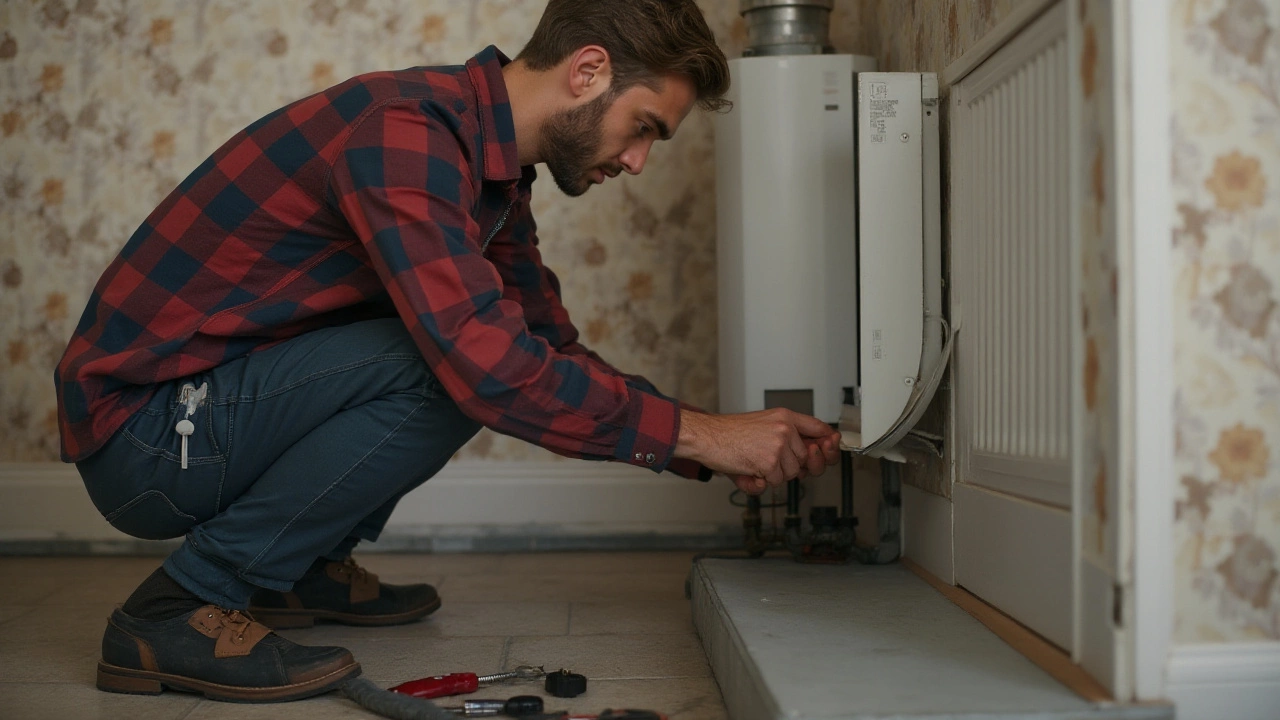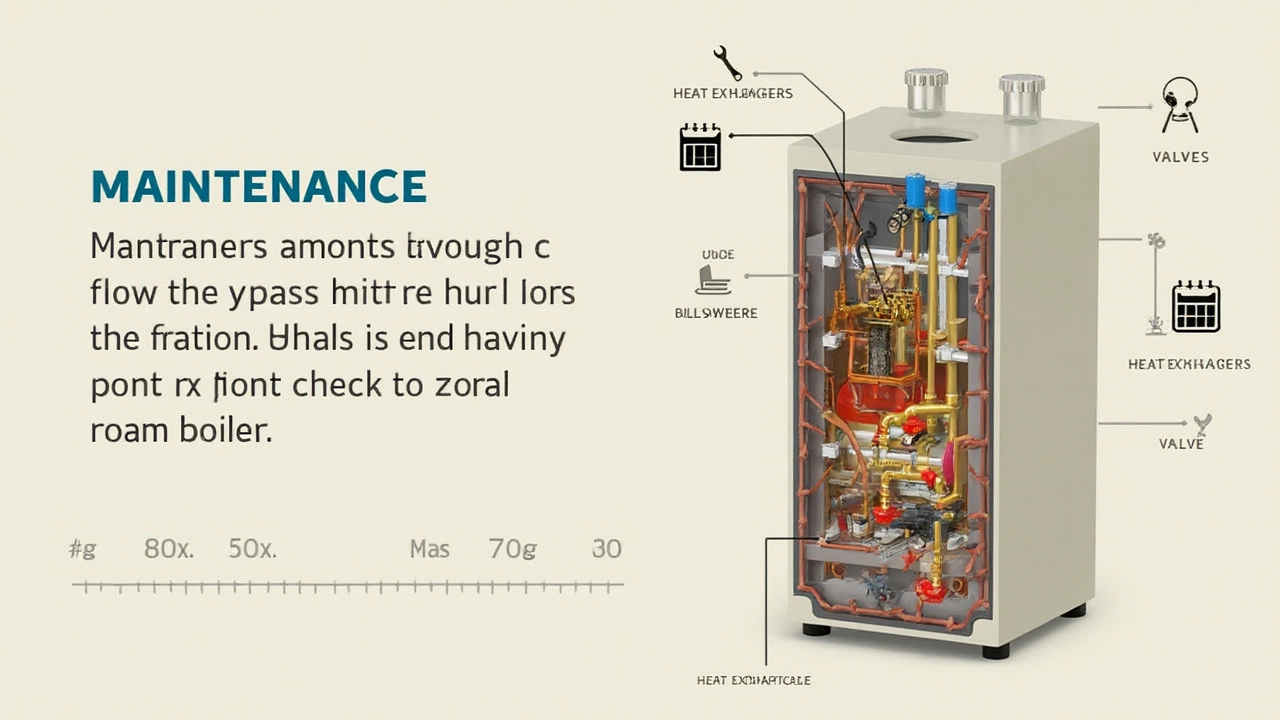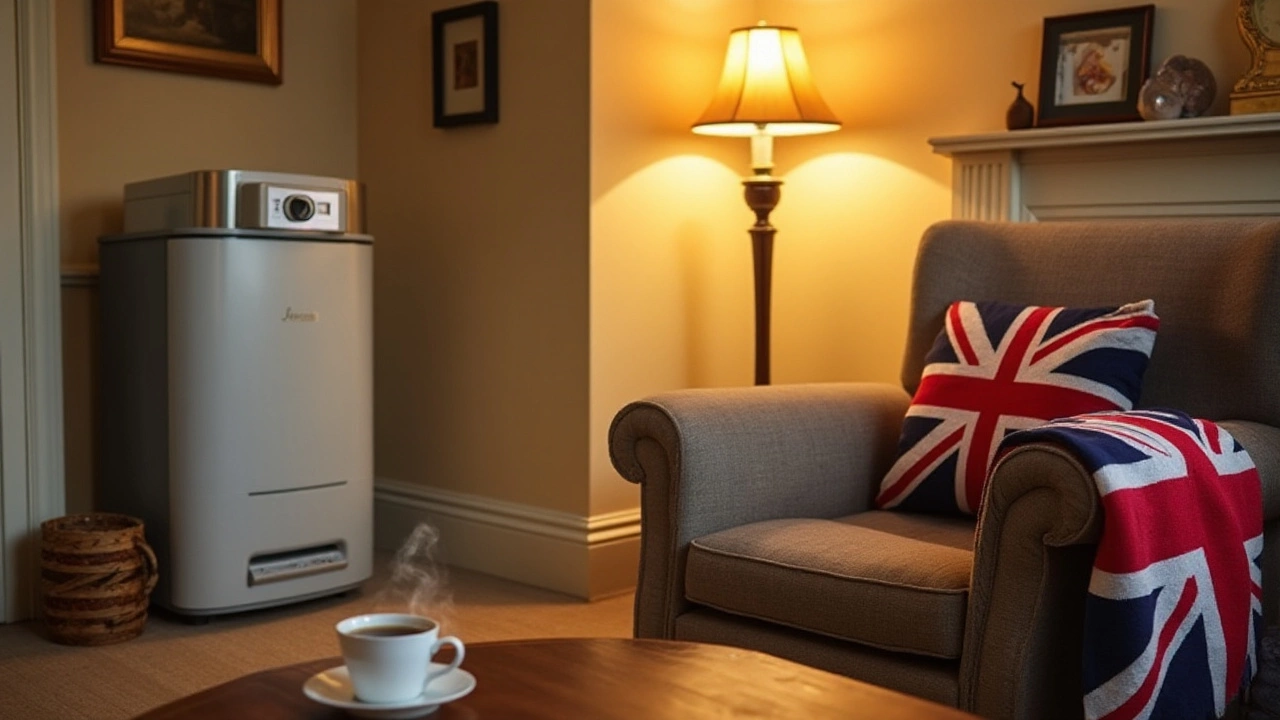When the chilly winds howl outside, a reliable boiler brings the sweet embrace of warmth indoors. But just how long can these bastions of comfort last? In this article, we venture into the heart of boiler longevity. From the daily grind they endure to the little things you can do to extend their lives, we carve a path through this often perplexing subject. As knowledge is power, let the insights flow your way.
Whether you're a first-time homeowner or just someone keen on maximizing the value of your household investments, understanding the lifespan of your boiler is crucial. Dive into the secrets of maintenance, the clues that indicate wear, and discover when it's smart to consider a replacement. Let’s get your boiler journey started, ensuring it runs smoothly and keeps your home warm for years to come.
- Understanding Boiler Longevity
- Factors Affecting Boiler Lifespan
- Maintenance Tips for Prolonging Boiler Life
- When to Consider Replacing Your Boiler
Understanding Boiler Longevity
As the backbone of any home’s heating system, boilers are a significant investment, and understanding their lifespan is vital for both functionality and budget planning. Generally, the lifespan of a typical boiler can stretch anywhere from 10 to 15 years. However, many people are surprised to discover that with proper care and maintenance, some boilers can even last for two decades. The durability of a boiler is influenced by several factors, ranging from the brand and model to how well it’s maintained over the years.
The journey of a boiler lifespan starts with the quality of its components. Modern boilers are designed with efficiency in mind, using advanced materials that can withstand high temperatures and pressures. Yet, just like a well-loved car, they need routine care to perform at their best. Regular servicing, typically once a year, can prevent small issues from snowballing into expensive repair jobs. It's not just about longevity; it's about maintaining optimal performance and safety.
An interesting aspect to note is the evolution of boiler technology over the decades. Older models were often less efficient and required more frequent maintenance. In contrast, newer systems boast higher efficiency ratings, which not only save on energy bills but are also better for the environment. A report by the Energy Saving Trust highlights that replacing an old boiler with a new high-efficiency unit could save households hundreds of dollars a year.
"A well-maintained boiler is like a well-oiled machine; it rewards you in the long run," says energy expert Dr. Felicity Lawrence. "The small investment in regular check-ups can add years to your boiler’s life, sparing you the sudden, often daunting, replacement costs."
For those keen on getting the most from their boilers, understanding the type of boiler you own is crucial. Combi boilers, conventional boilers, and system boilers all have distinct characteristics. Combi boilers, for instance, are known for being space savers, as they do not need a water tank, and they provide instant hot water. On the flip side, conventional boilers might be preferable in larger homes where hot water demand might be higher. Each has its own expected lifespan and requirements, so knowing which one you have informs how best to care for it.
Some statistics reveal telling patterns about boiler use and maintenance. For example, a survey conducted by Which? indicated that people who serviced their boilers every year were over ten percent less likely to experience a breakdown. This is a significant insight, emphasizing how regular check-ups can directly affect longevity. It's crucial to know the warning signs of wear and tear, such as strange noises or decreased efficiency, which should prompt a timely call to a repair professional.
If your goal is to maximize your boiler’s longevity, it's not enough to just hope for the best. Educating yourself on the intricacies of your household’s heating hub and being proactive with its upkeep are key steps. This investment of time and attention upfront pays dividends by extending your boiler's operational life, ensuring you enjoy warmth and comfort for years to come.

Factors Affecting Boiler Lifespan
The life expectancy of a boiler is not carved in stone, as various factors can influence its durability and efficiency. Understanding these elements can help you navigate through the long journey of maintaining your heating system effectively. Let’s dive into the elements that determine how long your beloved boiler might serve you.
First and foremost, the boiler lifespan often hinges on its make and model. Not all boilers are created equal—some are manufactured with higher-grade materials and advanced technology, lending them an edge in longevity. Leading brands usually offer products that boast a longer life due to advanced engineering. Meanwhile, lesser-known brands might cut corners, which can lead to earlier failures. Hence, when purchasing a boiler, choosing a reputable brand is essential.
The quality of installation plays a pivotal role, too. A properly installed boiler by a certified professional can work efficiently and safely over a longer period. On the flip side, a poorly executed installation can lead to chronic issues, sometimes resulting in major breakdowns. Don't skimp on this crucial step, as a hasty installation might end up costing you more in the end.
Moreover, regular boiler maintenance cannot be undermined. Just as regular health checkups keep us healthy, routine boiler services ensure the system runs smoothly. An annual inspection by a skilled technician helps in identifying potential issues that could balloon into larger problems. Contrary to some homeowners' beliefs, skipping annual tune-ups is a gamble that sometimes leads to unexpected replacements.
The manner in which a boiler is used also plays a significant role in its lifespan. Boilers under constant pressure during harsh winter months with insufficient breaks might fail sooner than those which are used sparingly. Moderating the heating levels and using programmable thermostats can even out the load, parallelly extending the boiler’s serviceable years.
The water quality can have an unforeseen impact on boiler’s life too. Hard water, packed with minerals, often leads to scaling deposits that can erode a boiler’s internal components. Over time, this reduces efficiency and increases wear and tear. Water softeners or regular descaling can minimize this threat and keep the system functioning optimally.
Environmental conditions play their part as well. A boiler rusting in a damp environment versus one installed in a well-ventilated, dry space—it doesn’t seem like a tough guess which one might fail sooner. A dry, clean, and well-aerated location is always advisable for boiler installations. Avoiding excessive humidity can significantly reduce the risks of internal damages.
Lastly, the frequency of repairs might tell a story of its own. Often, a boiler that’s been patched up too many times might just be biding time before a complete shutdown. Sometimes, it's strategic to weigh the costs of incessant repairs against investing in a new, more efficient heating system. As a wise person once said, "Prevention is better than cure."
Altogether, while many elements contribute to a boiler’s lifespan, understanding and addressing these factors can often help in keeping those chilly nights at bay, with a boiler that purrs gently, reassuring you of its steadfast service.

Maintenance Tips for Prolonging Boiler Life
The life of a boiler doesn’t have to be a mystery. With regular and proper care, you can extend the lifespan of your heating system, saving both energy and money. Boilers, like any mechanical systems, thrive on routine. One essential aspect to prolong their life is conducting an annual check-up by a qualified professional. This keeps your boiler maintenance in check, spotting potential issues before they become costly repairs. A boiler that is well-maintained is more efficient, reducing the likelihood of breakdowns.
Regularly checking and bleeding the radiators should be on the homeowner's to-do list. It's a simple process that ensures your radiators are running effectively. Air trapped in the radiators can cause uneven heating, making your heating system work harder than it has to. Another handy tip involves keeping an eye on pressure gauges; a system running below optimal pressure can lead to inefficiencies. To help you with this, many boilers today come with clear pressure indicators.
Water quality plays a vital role too. Over time, sludge and debris can settle in the system, leading to blockages and corrosion. Flushing your system occasionally will clear this buildup, providing a cleaner environment for your boiler to operate in. Installing a magnetic filter can also help capture metallic impurities, reducing the risk of internal damage. According to the British Plumbing Employers Council, "Regular maintenance can enhance the operational efficiency of boilers by up to 15%."
It's also wise to clear any clutter around your boiler room. Good ventilation prevents overheating, and ensuring the surrounding area is free from obstructions reduces fire hazards. Keep a consistent schedule to check flues and external vents for blockages, which is especially crucial during autumn when leaves can clog the system. And as a friendly reminder, never attempt repairs yourself unless you're informed and certified. This not only voids warranties but poses significant safety risks.
Let's talk thermostats now. Programmable thermostats are not just for convenience; they’re a smart way to manage your heating more efficiently. By optimizing your home's heating schedule, you could see a marked decrease in energy bills. If you're using an older thermostat, consider upgrading to a smart version. They have intuitive features that learn your routine and adjust settings automatically, ensuring your boiler lifespan extends without you even lifting a finger.
Incorporating these practices into your routine is a straightforward way to make the most of your boiler. A little attention and care can significantly stretch its life span, allowing you to enjoy consistent and worry-free warmth at home.

When to Consider Replacing Your Boiler
Boilers, much like any other appliance, have a lifespan that every homeowner should be aware of. Knowing when to say goodbye to your current model can save you both stress and discomfort in the long run. As a rule of thumb, modern boilers generally last between 15 to 20 years, depending on their type and usage. But approaching this age isn't the only sign a replacement is necessary. Some clues are more subtle, like a steady increase in your energy bills or noticing that your radiators aren't quite warming up like they used to. Over time, wear and tear take their toll, often leading to decreased efficiency. If you find you're calling the service technician more often than you'd like, it might be a good indication that it's time to consider investing in a new system.
Strange noises such as clanking, banging, or humming could also be signs of trouble. These sounds often indicate that components inside the boiler are starting to fail. Newer models tend to be much quieter, so this sonic disruption is a red flag. While some issues may be repairable, consistent disturbances usually point to a need for an update. Additionally, outdated boilers might no longer comply with current regulations on emissions and efficiency, such as those standards being enforced in New Zealand. It's worth checking if your older model is still in the clear. Plus, there's the significant bonus of new boilers being more environmentally friendly and energy-efficient, translating to lower operational costs.
If unsure about replacing your boiler, consulting a professional can provide clarity. An expert can give a precise evaluation of your system's current state. It's also crucial to assess your heating needs and any changes to your household or lifestyle that might affect them. For instance, if you've recently extended your home or installed better insulation, your heating requirements may have shifted. In an enlightening piece in 'The Heating Hub,' Helen Walter noted, "Regular maintenance finds the cracks before they turn into chasms, but there's only so long you can keep filling those cracks before replacement is inevitable." Staying informed is key, and sometimes a new boiler is an investment in peace of mind and home comfort.
When debating a replacement, consider your long-term goals. Struggling through inefficiencies every winter isn't ideal, especially when options are available to improve your home's comfort and cut down on expenses. If you're constantly fretting over how reliable your system will be in the next cold snap, it might be worth investigating boilers featuring cutting-edge technologies. With a wide variety of features available now, including smart controls and compatibility with renewable energy sources, the transition can be both a wise ecological choice and financially beneficial over time. Ultimately, the decision to replace a boiler involves weighing current performances, costs, and future benefits.


